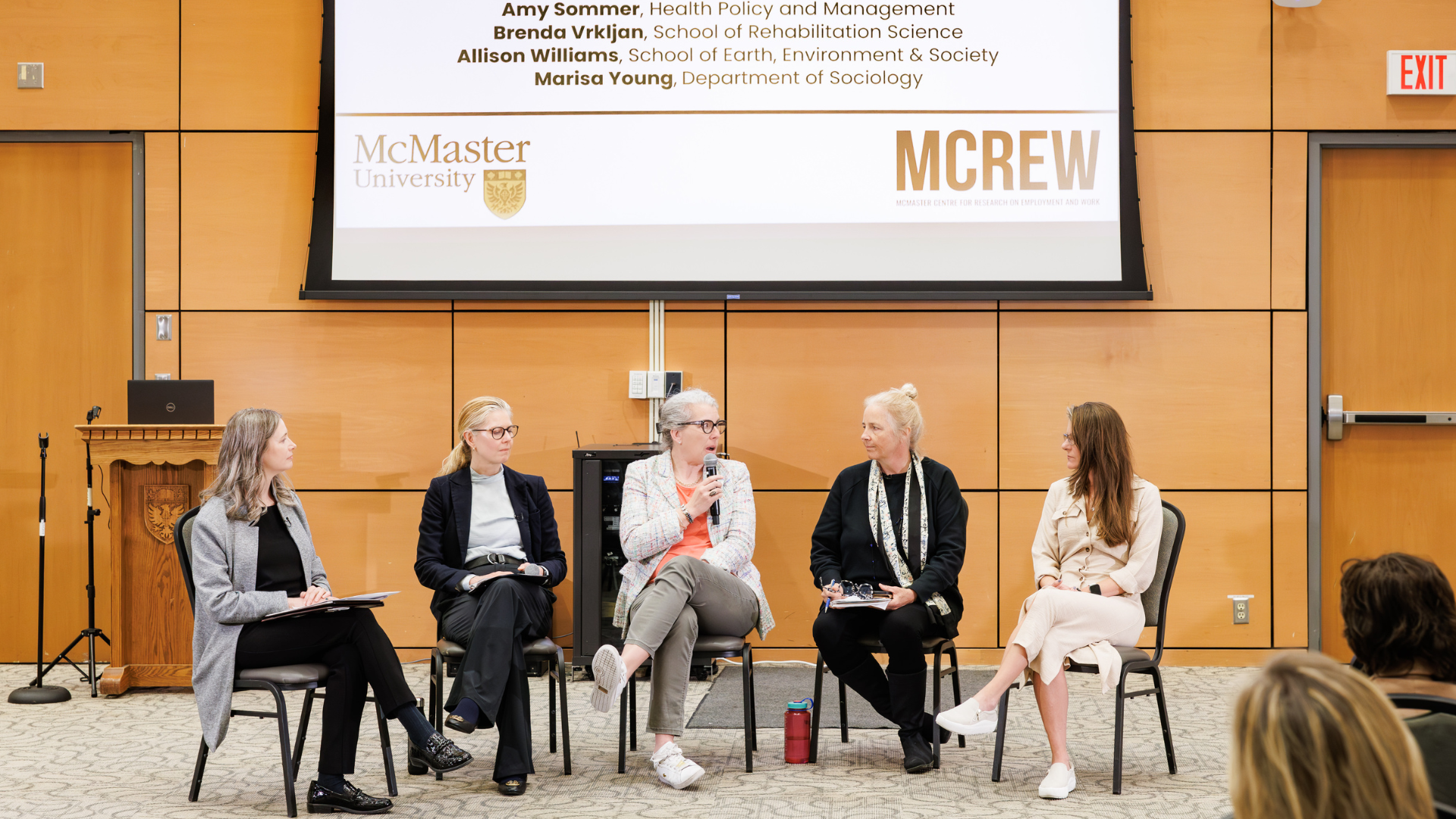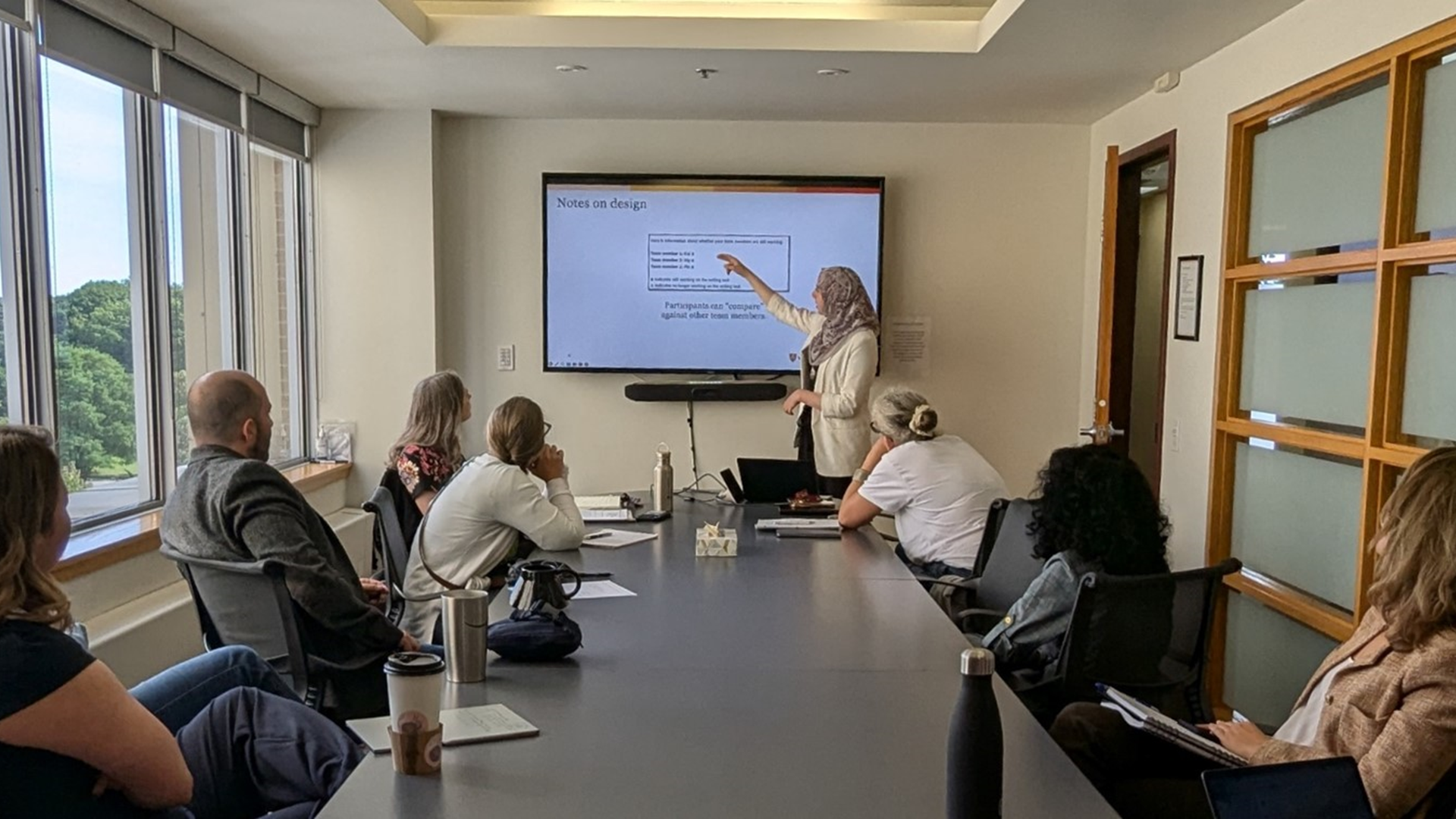HUMAN RESOURCES AND MANAGEMENT STRATEGIC PLAN | RESEARCH AND SCHOLARSHIP
Shaping workplace policy through the lens of equity
March 18, 2025 ·
Contributed by: Grace Mullen, Media Specialist

Modern workplaces are evolving, but are they improving? Erin Reid, professor of Human Resources and Management at the DeGroote School of Business, has dedicated much of her career to investigating relationships between gender in the workplace and worker satisfaction.
“I was always motivated by trying to make the workplace a fairer place and help people have more satisfying careers,” says Reid.
Now, as the newly appointed Canada Research Chair in Work, Organizations and Careers, Reid will expand her research on how workplaces can become more equitable for employees.
Despite progress, workplace equity remains an ongoing challenge.
“The persistence of gender discrimination has been really surprising to me,” says Reid. “I wish it was better. I wish things were better.”
One key challenge she highlights is the uneven career progression between men and women in many professions. While women are increasingly hired at comparable rates to men, there are still differences in career advancement.
“To some extent, we’ve been trying to solve the problem of gender inequality in the workplace by having women go into what were traditionally men’s jobs and ignoring making jobs that are dominated by women better,” explains Reid.
Her research challenges the notion that simply adjusting the ratios of men and women in the workplace will automatically result in increased equity. Gender-related workplace issues go beyond representation—they are also about how workplaces value and treat employees. Reid asserts that it is not just women who are impacted by gender discrimination, it’s everyone.
However, before workplace policies can change, organizations must first listen to the needs of their employees.
“Overall, now my research has evolved to focus on how we can make the workplace one in which everyone can thrive,” says Reid.
Reid’s current research explores the differences between careers in female-dominated, male-dominated and gender-neutral professions including nursing, engineering and accounting. This five-year project prioritizes listening to worker perspectives, and recognizes sustainable change begins with understanding workers’ needs. The lessons learned from each of the different industries can help inform next steps to improve the quality of workers’ careers in each industry.
“If you care about an equitable workplace, you want to treat everyone fairly,” explains Reid.
Fairness, equity and transparency are some of the driving forces behind Reid’s research priorities. Reid evaluates critical factors that shape people’s experiences of work such as work-life balance, compensation, autonomy, recognition and opportunities for growth. Each facet contributes to a more holistic understanding of what workers need to feel valued both inside and outside of work. A worker who feels valued can influence team dynamics, productivity and overall organizational success.
Reid emphasizes the importance of understanding that employees also have roles and responsibilities outside of work, and that the onus should be on the workplace, not the worker to create and support balance.
“It’s incumbent on managers and workplaces to create workplaces that recognize the human beings who work in them as a whole—people who deserve to thrive both at work and outside of work,” says Reid.
Putting this holistic approach into practice requires the workplace to clearly communicate transparent policies and expectations to employees.
For instance, workplaces can support employees by setting clear guidelines on availability and time commitments. This can mean establishing a clear set of hours, such as a standard 9 a.m. to 5 p.m. workday with the expectation that work-related matters will be handled within these hours. Another example is providing employees with a flexible work schedule or hybrid work model to accommodate workers who have children, take care of older adult parents or need the flexibility to manage other personal circumstances. This structure can ensure workers can disconnect from work outside of working hours, providing them with the opportunity to be focused and motivated when at work.
The goal is not necessarily to create policies that neatly accommodates each individual employee, as Reid explains this would not be possible, “You can’t make everyone perfectly happy, but you can gather input from everyone and do your best to devise policies that try to broadly improve people’s experiences of their work.”
When people have opportunities to thrive in the various aspects of their lives, they are more likely to be motivated, engaged and capable of making meaningful contributions, which helps to bolster productivity.
“I think the bottom line is everyone is a human being who deserves to thrive both at work and outside of work,” says Reid.
As workplaces and life demands continue to evolve, Reid remains hopeful that by challenging traditional structures and advocating for policies grounded in evidence, workplaces can become more equitable and supportive for all.















